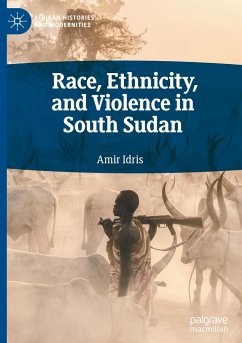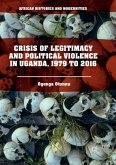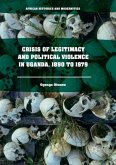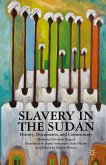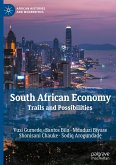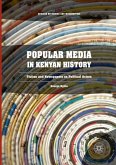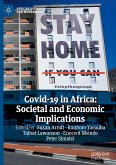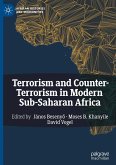The purpose of this book is to understand how and why "liberators" of South Sudan have become perpetrators of ethnically driven violence. How and why did violence happen immediately after independence in South Sudan?
South Sudan slid into civil war in December 2013, just two years after winning its hard-won independence. A great deal has been written about the conflict and violence of this period, much of which emphasizes the notion that the root causes of the conflict can be traced to the ethnic division and hatred among the population or the lack of state capacity to manage ethnic diversity and hostilities. However, the existing literature exhibits important analytical gaps, focusing primarily on the state of the violence and the immediate political history of South Sudan dating back to its political independence in 2011, but lacking critical analysis of historical and anthropological interpretations of state and society. This book addresses these gaps in knowledge and understanding and in so doing seeks to explain how and why liberators become perpetrators of violence, and how the intersection of the legacies of slavery, colonialism, and national liberation struggle contributed to violence in South Sudan. Through a comprehensive exploration of identity and violence within the broader context of state formation, the book sheds light on why those who sought sovereignty may turn against their own, drawing parallels with colonial discourse. It aspires to provide nuanced frameworks and empirical insight for scholars, students, practitioners, and policymakers engaged in South Sudan, politics, development, and peacebuilding.
South Sudan slid into civil war in December 2013, just two years after winning its hard-won independence. A great deal has been written about the conflict and violence of this period, much of which emphasizes the notion that the root causes of the conflict can be traced to the ethnic division and hatred among the population or the lack of state capacity to manage ethnic diversity and hostilities. However, the existing literature exhibits important analytical gaps, focusing primarily on the state of the violence and the immediate political history of South Sudan dating back to its political independence in 2011, but lacking critical analysis of historical and anthropological interpretations of state and society. This book addresses these gaps in knowledge and understanding and in so doing seeks to explain how and why liberators become perpetrators of violence, and how the intersection of the legacies of slavery, colonialism, and national liberation struggle contributed to violence in South Sudan. Through a comprehensive exploration of identity and violence within the broader context of state formation, the book sheds light on why those who sought sovereignty may turn against their own, drawing parallels with colonial discourse. It aspires to provide nuanced frameworks and empirical insight for scholars, students, practitioners, and policymakers engaged in South Sudan, politics, development, and peacebuilding.

